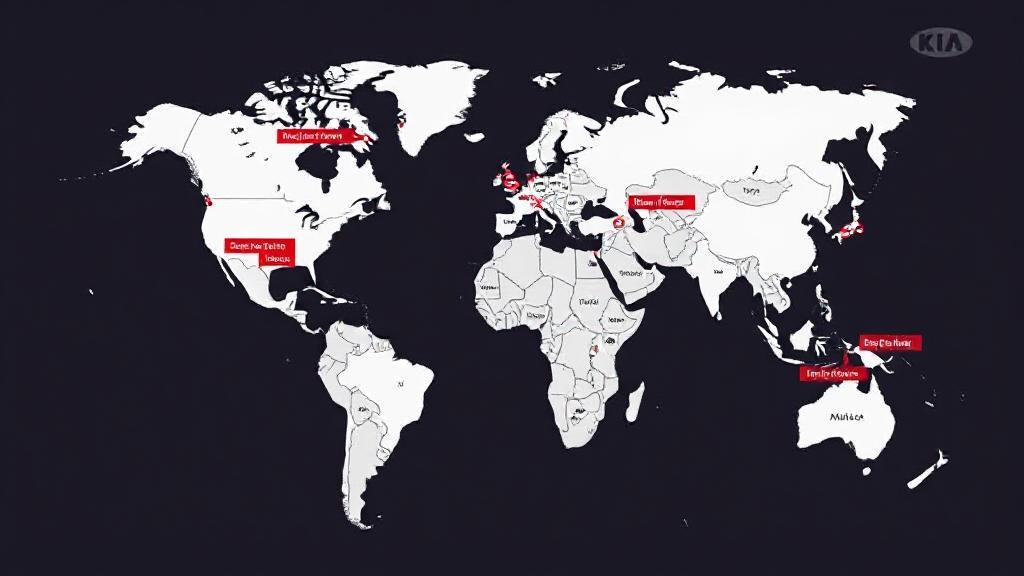A Brief History of Kia
Kia Motors Corporation, founded in 1944, is South Korea's oldest car manufacturer. Initially starting as a manufacturer of bicycle parts and steel tubing, Kia has evolved into a major automotive brand known for its innovation and quality. For more on Kia's history, visit Kia's official website.
Global Manufacturing Locations
South Korean Facilities 🇰🇷
The heart of Kia's manufacturing operations remains in South Korea, with several major plants:
- Hwaseong Plant: Produces the Kia Stinger, K5, K9, and Optima
- Gwangju Plant: Manufactures SUVs including the Sportage, Seltos, and Carnival
- Sohari Plant: Kia's first integrated automobile manufacturing facility, producing models like the Rio and Carnival
North American Operations 🌎
United States
The state-of-the-art facility in West Point, Georgia, opened in 2009, produces:
- Telluride SUV
- K5 sedan
- Sorento SUV
Mexico
While Kia doesn't manufacture vehicles in Mexico directly, they maintain a significant presence through their partnership with Hyundai Motor Group, with a facility in:
- Pesquería, Nuevo León, producing the Forte and Rio
European Operations 🇪🇺
Kia's European manufacturing center in Žilina, Slovakia produces:
- Sportage
- Ceed family of vehicles
- Engines for various models
Asian Facilities Beyond Korea
China 🇨🇳
Through joint ventures with Dongfeng Motor Corporation and Yueda Group, Kia operates plants in:
- Yancheng, Jiangsu Province
- Yangcheng
- Dengfeng
India 🇮🇳
The ultra-modern facility in Anantapur, Andhra Pradesh, focuses on:
- Seltos
- Sonet
- Carens
Production Capacity
| Region | Annual Capacity |
|---|---|
| South Korea | 1.5 million units |
| North America | 340,000 units |
| Europe | 330,000 units |
| China | 890,000 units |
| India | 300,000 units |
Impact of Global Manufacturing
Kia's global manufacturing strategy allows it to:
- Reduce Costs: Manufacturing closer to key markets reduces shipping costs and tariffs
- Adapt to Local Markets: Local production enables customization for regional preferences
- Enhance Supply Chain Efficiency: A diversified manufacturing base helps mitigate supply chain risks
Environmental Commitment
Kia's manufacturing facilities emphasize sustainability through:
- Solar power integration
- Water recycling systems
- Waste reduction programs
- Energy-efficient manufacturing processes
"Our global manufacturing network adheres to the same rigorous quality standards regardless of location, ensuring consistency in every Kia vehicle produced worldwide."
For more insights into Kia's global operations, visit Kia's global website.
Note: Production numbers and models manufactured at specific locations may vary based on market demands and company strategy.
